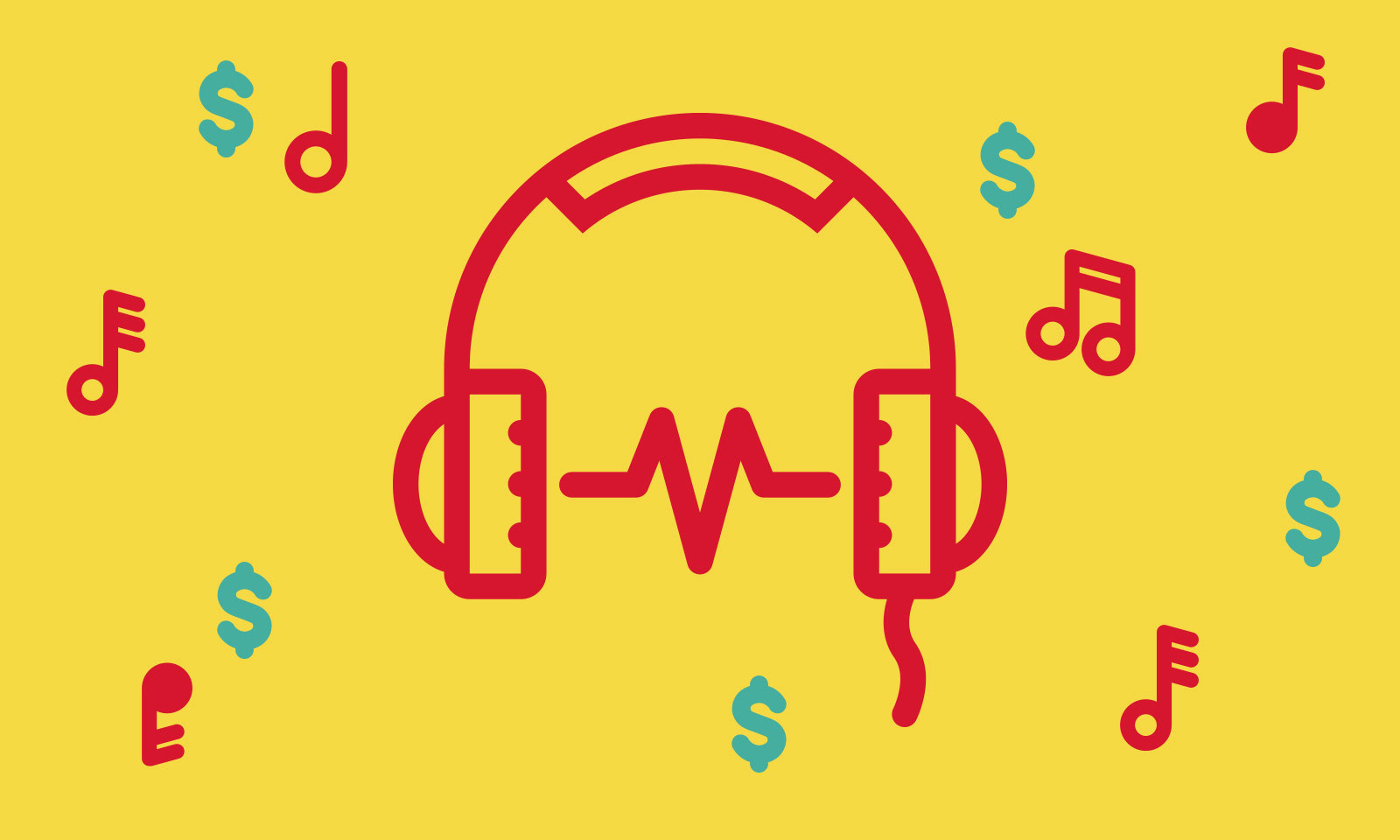Why do blockchain musicians?

DDEX, dotBC and OMI are the main initiatives of the music market.
Author: Sergey Bludov, Vice President and DataArt Partner
Technology race
The music industry was at a technological crossroads. The main problem is to track exactly which tracks are downloading or listening online. Another pressing question is how to simplify the distribution of music, and at the same time figure out how much for each of the songs you listened to should be received by musicians, songwriters and copyright holders of them.
')
The potential solution was the blockchain technology. After all, in fact it is - a distributed registry that checks the accuracy of transactions. Which, accordingly, can create registration records without participation of any third-party organizations.
Blockchain
Today, the use of any compositions on radio, television or concerts and subsequent payments to the holders of the respective copyright is monitored by a large-scale network of copyright societies (PRO). But the fashionable blockchain, which has long been closely in the banking sector, is able to make a revolution in the music industry. This technology creates a decentralized trusted registry that can potentially provide instant and completely transparent royalties to creators of music - directly from fans. The decision underlying the existence of Bitcoin, can help the modern music market to cope with a huge number of problems:
• minimize delays associated with data collection;
• optimize payments to performers;
• eliminate errors that still exist in the field of musical license rights.
The DotBC project, created by Benji Rogers, uses the blockchain to create a revolutionary open-source environment that truly corresponds to the digital music era. Rogers proposes to replace the popular digital distribution formats (.mpeg, .wav) with a new format with the .bc (dot Blockchain) extension, not intended for reuse by the wrapper. This approach will allow the digital registry to track copyright and use rights for individuals and companies, whether it be television, radio or anything else more fashionable and modern. Moreover, this solution will allow to cover the records, the rights to their publication and execution, to manage all the elements within one distributed environment. Such a format may contain minimally viable data (MVD) through the use of the W3C JSON-LD web standard. So, in the end, it all comes down to the implementation of payments and their transparency.
However, the success of this project depends on the partners who decide to participate in it in it. But here, Rogers got a good advantage at the start, with the strong support of important players in the music market.
DDEX
The DDEX (Digital Data Exchange) project seeks to standardize the digital supply chain - the goal is definitely noble. However, the widespread introduction of “standards” can be incredibly difficult: take a look at any other industry that has managed to go through this process. However, DDEX has a trump card - strong partners that have been working in the right direction for a long time: Apple, Amazon, Spotify, Google and other major brands. And after all, the success of the implementation of a single metadata standard depends on an effective partnership.
Of course, the technology itself can always be improved: to simplify processes or solve problems that have arisen, but implementation is always the most important issue. And here at the DDEX standard, things are going quite well: YouTube, Amazon, Apple, Pandora, Spotify and other companies are already using it to deliver data. T. h. That the future in the project look with optimism. It remains for us to be patient and wait for some music startup to introduce it into its decisions, and maybe it will create something fundamentally new.
Omi
In the fight involved another player. The Open Music Initiative (OMI) is another open source platform that tracks the creator of the music and the copyright holder. While the project preaches its own approach to creativity. But, most likely, the focus here will shift in the direction of making a profit, in any case, before this happened in 100% of cases. OMI has already managed to acquire influential partners, including Sony and Warner Music, the popular streaming music services Spotify and Pandora. The OMI project is also trying to introduce standardization.
The music lovers hardly noticed how the race became the audience, the winner of which will for a long time take the leading position in the field of digital music standardization and the introduction of new technologies. While the picture looks fragmented, and there are enough players in sight, it is very difficult to say which of them will burst forth. And although it is possible that the favorite will be determined in the near future, as early as 2017, dark horses can join the applicants. And very promising.
Source: https://habr.com/ru/post/402553/
All Articles